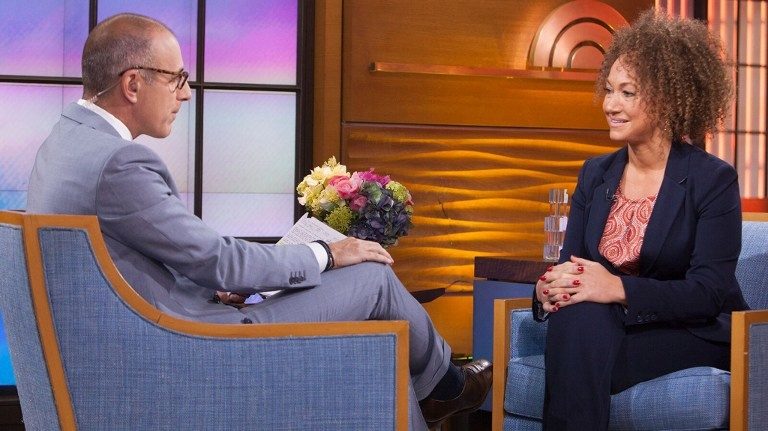SUMMARY
This is AI generated summarization, which may have errors. For context, always refer to the full article.

WASHINGTON, United States – A US civil rights activist who resigned from her post at the country’s leading African American advocacy group amid allegations that she has masqueraded as a black woman for years said Tuesday she identifies as an African American.
A firestorm erupted last week around Rachel Dolezal – who was president of the Spokane, Washington chapter of the National Association for the Advancement of Colored People (NAACP) – after her parents, who are white, said she is too.
“I identify as black,” an unapologetic Dolezal told NBC’s “Today” show, in her first interview since her story made national headlines.
She said that by age five, she was already “drawing self-portraits with the brown crayon instead of peach. Black curly hair.”
“It’s a little more complex than me identifying as black or answering a question of ‘are you black or white?'” she told NBC.
Dolezal, 37, built a career as an activist in the black community of Spokane.
She rose to become the president of the city’s branch of the NAACP and served as an independent mediator for the city’s police force.
Neither position required that she be black, but media reports said Dolezal identified herself in application forms and in various public appearances and writings as black.
She resigned Monday from her NAACP post.
Dolezal’s parents, from whom she is estranged, have provided local media with a birth certificate and photographs of her as a blonde, fair-skinned child.
Now, as an adult, she is tawny-skinned and dark-haired.
“I certainly don’t stay out of the sun, you know. And I also don’t — as some of the critics have said, put on black face as a performance,” Dolezal said, calling the firestorm around her “viciously inhumane.”
“The discussion is really about what it is to be human,” Dolezal said, adding that she hoped the incident “really can drive at the core of definitions of race, ethnicity, culture, self-determination, personal agency and, ultimately, empowerment.” – Rappler.com
Add a comment
How does this make you feel?
There are no comments yet. Add your comment to start the conversation.